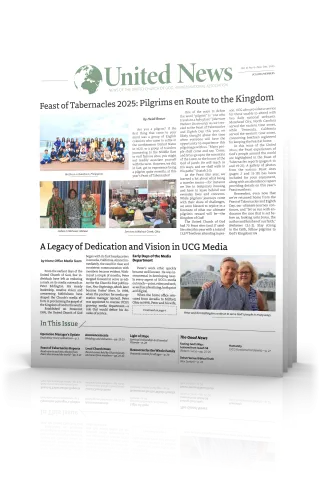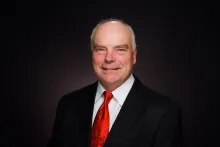Deism Versus Biblical Truth

Much of modern Christianity today is being gradually destroyed from within by Deism.
Deism is a pseudo belief in the existence of God. Its proponents admit that the creation demands the existence of a creator, but not necessarily a personal or comprehendible God who intervenes in the affairs of men. Deism is solely based on rational thought without any reliance on revealed religions or religious authority. It emphasizes the concept of natural theology—that is, God’s existence is revealed through nature and observation.
A German priest, theologian, author, hymnwriter and Augustinian friar named Martin Luther publicly protested the corruption, vile practices and teachings of the Roman Catholic Church. In 1517 he posted and circulated his “Ninety-five Theses or Disputation on the Power and Efficacy of Indulgences.” Luther’s teachings spread across Europe, resulting in the division of Western Christendom between Roman Catholicism and the new Protestant traditions, mainly Lutheranism, Calvinism, Anglicanism and Anabaptists. A by-product of the fissure in Christianity was another philosophy taking hold in Europe—the Age of Enlightenment. Also known as the Age of Reason, it was an intellectual and philosophical movement in Europe from the late 17th century to the early 19th century. At its foundation, the Enlightenment rejected religion—meaning primarily the Roman Catholic Church, but also gradually including the Protestant churches. There are over one hundred famous authors and philosophers from that period. Famous among them are Voltaire, Rousseau, Descartes and Francis Bacon. For Martin Luther, as for Bacon or Descartes, the way to truth lay in the application of human reason.
This philosophy, which many historians consider an expansion of the teachings of Socrates and Aristotle, rejected religious texts and appealed only to truths that they felt could be established by reason and observation. Such philosophers and theologians were called “deists,” and the philosophical and theological position they advocated is called “Deism.” Thomas Jefferson, Benjamin Franklin, James Madison and James Monroe are today considered to have been deists. They believed in a rational God but often rejected traditional Christian doctrines.
The concepts of Enlightenment have been infiltrating “Christian” churches for a generation. Known as “deconstruction,” this movement has as its primary objective the reconciliation of one’s personal views with their changing religious beliefs. Each believer can fashion his faith as a mixture of teachings he chooses. As one becomes more comfortable rejecting God’s Word, deconstruction results in disconnection from a traditional biblical Christian worldview. Ultimately, each step in the process draws one farther and farther away from the God of the Bible.
BcWorldview.org author Jeff Hines recently published, “. . . those who once promoted Christian deconstruction are now turning to other words in order to repaint a more positive picture of the process . . . The term ‘deconstruction’ is being relabeled in the Christian community and, therefore, beginning to be replaced by words such as ‘rearranging’ or ‘recommitment’ regarding one’s theological underpinnings.” The message is to blend or adapt religious teachings to one’s own preferences. Hines added, “deconstructionists have landed in the fringes of Christianity, where anything goes and inclusiveness of a broad range of twisted theology has become part of the movement . . . Deconstruction means choosing easier beliefs . . . [and it] almost always means adopting views palatable to the unbelieving world. All too conveniently, it means moving away from positions on sexuality, gender, salvation, sin, hell, and other issues not embraced by popular culture.”
The destructive force of Deism can be seen by the demise of the Anglican Church—the once powerful Church of England that is now an empty shell. Much of modern Christianity today is being gradually destroyed from within by Deism. The “health and wealth” gospel and “cheap grace” ideas are cases in point. When people use feelings or personal desires as their authority, the result is often lonely. By establishing the broad “accept everyone and their standards” idea they soon conform to their own view of what is truth, moral and right, rather than God’s teachings. It involves replacing the God of the Bible with a false god based on what mankind feels he should think and believe. It means rejecting entirely or picking only small parts of the Bible to believe.
The false teachings of Deism have returned with a vengeance. A large portion of churchgoers under age 40 have adopted this blending of truth and error. No surprise. God inspired the apostle Peter to write about our time, “But there were also false prophets among the people, even as there will be false teachers among you, who will secretly bring in destructive heresies, even denying the Lord who bought them, and bring on themselves swift destruction. And many will follow their destructive ways, because of whom the way of truth will be blasphemed. By covetousness they will exploit you with deceptive words; for a long time their judgment has not been idle, and their destruction does not slumber” (2 Peter 2:1-3).
Jesus taught us, “And you shall know the truth, and the truth shall make you free” (John 8:32). Rejecting truth and replacing it with human reason always results in a type of slavery. That’s why we must be on guard against modern Deism.






